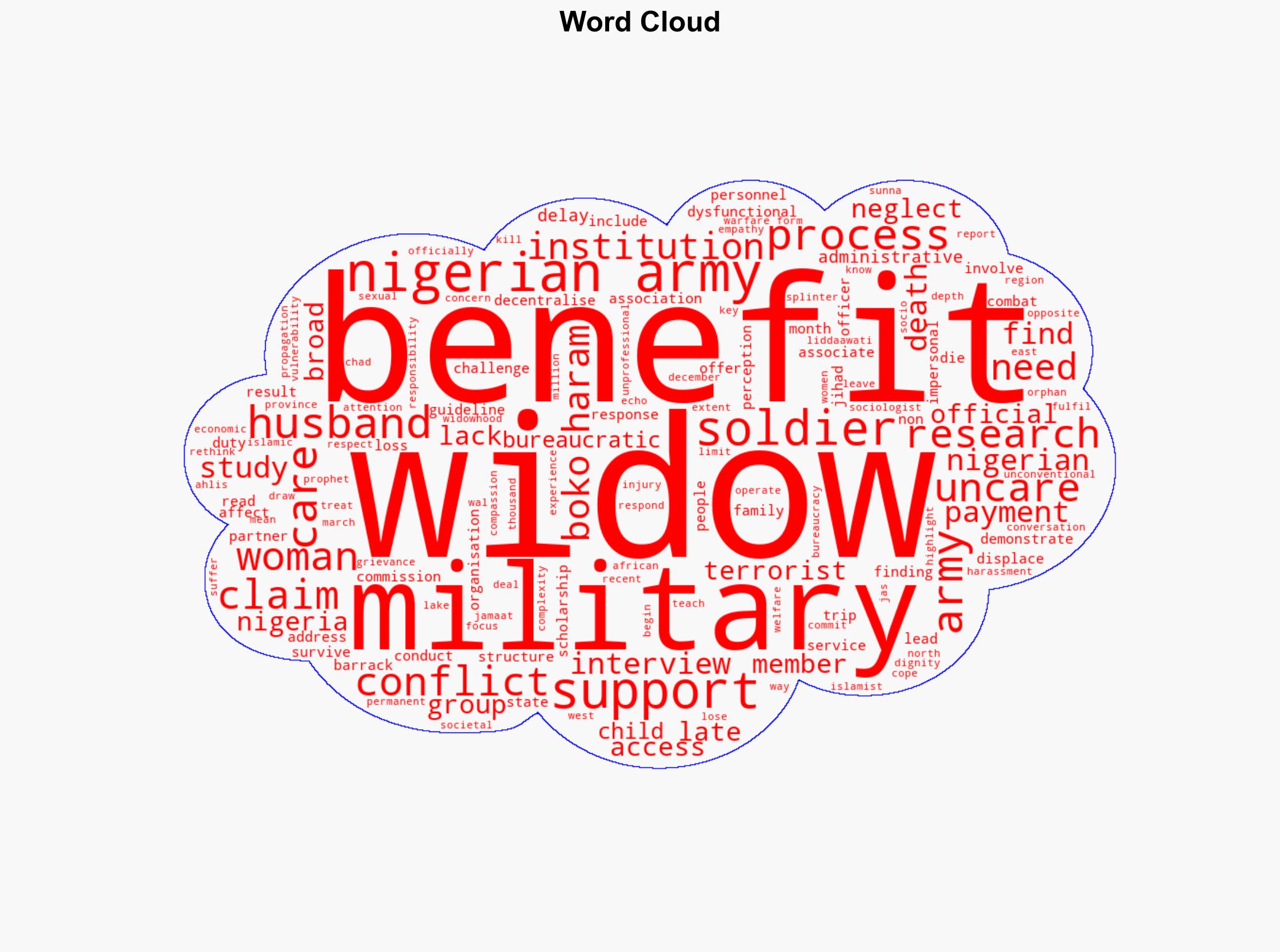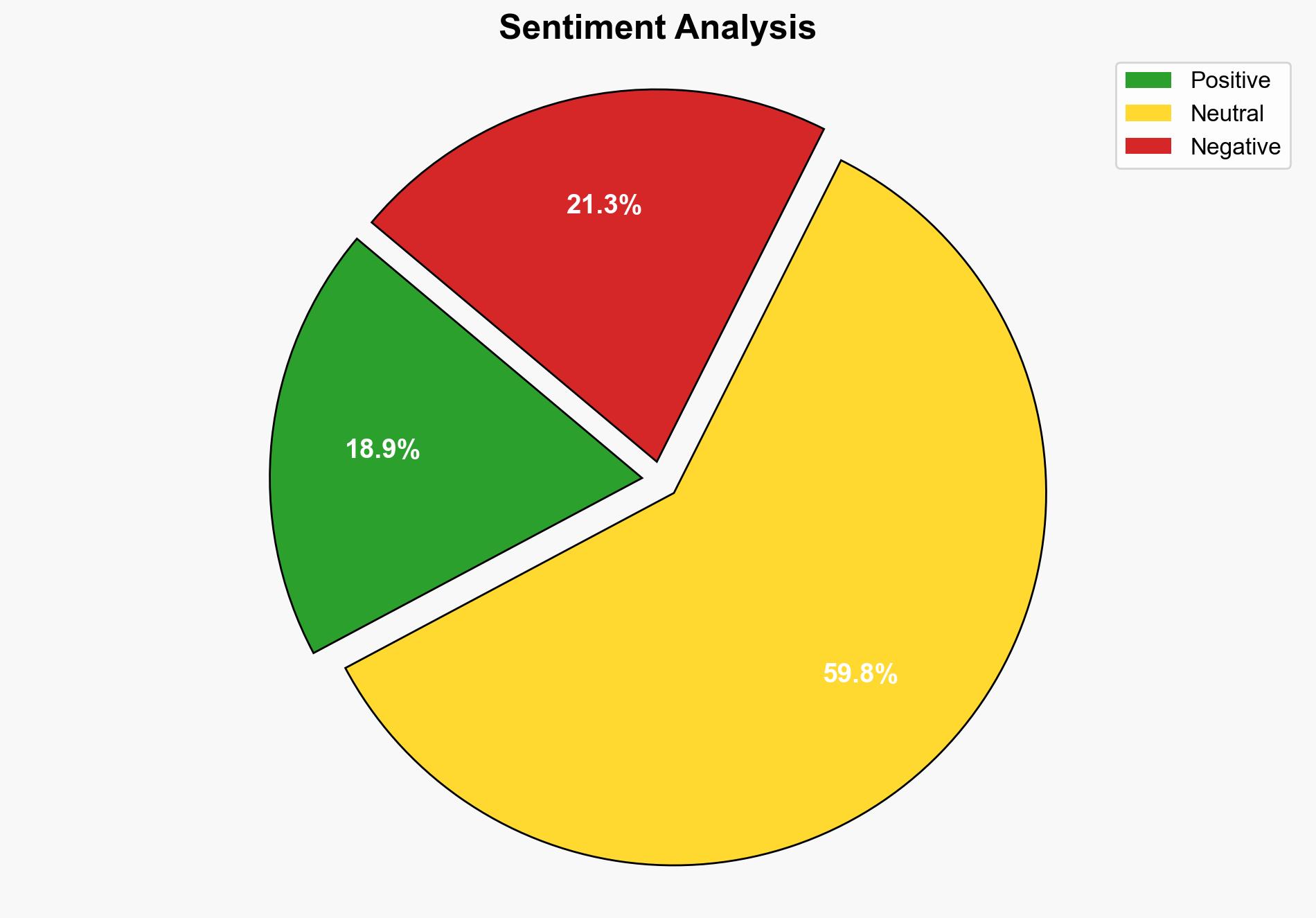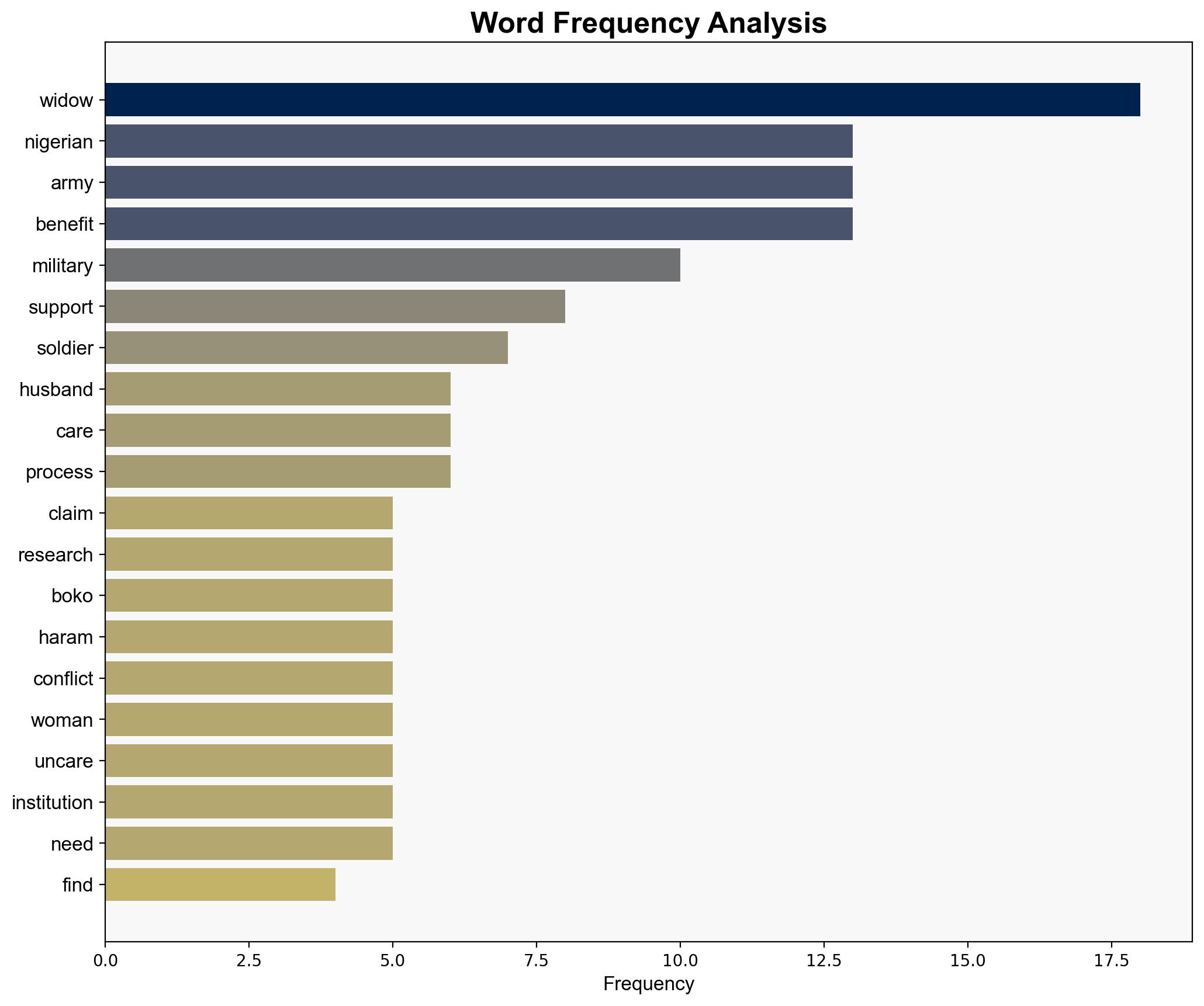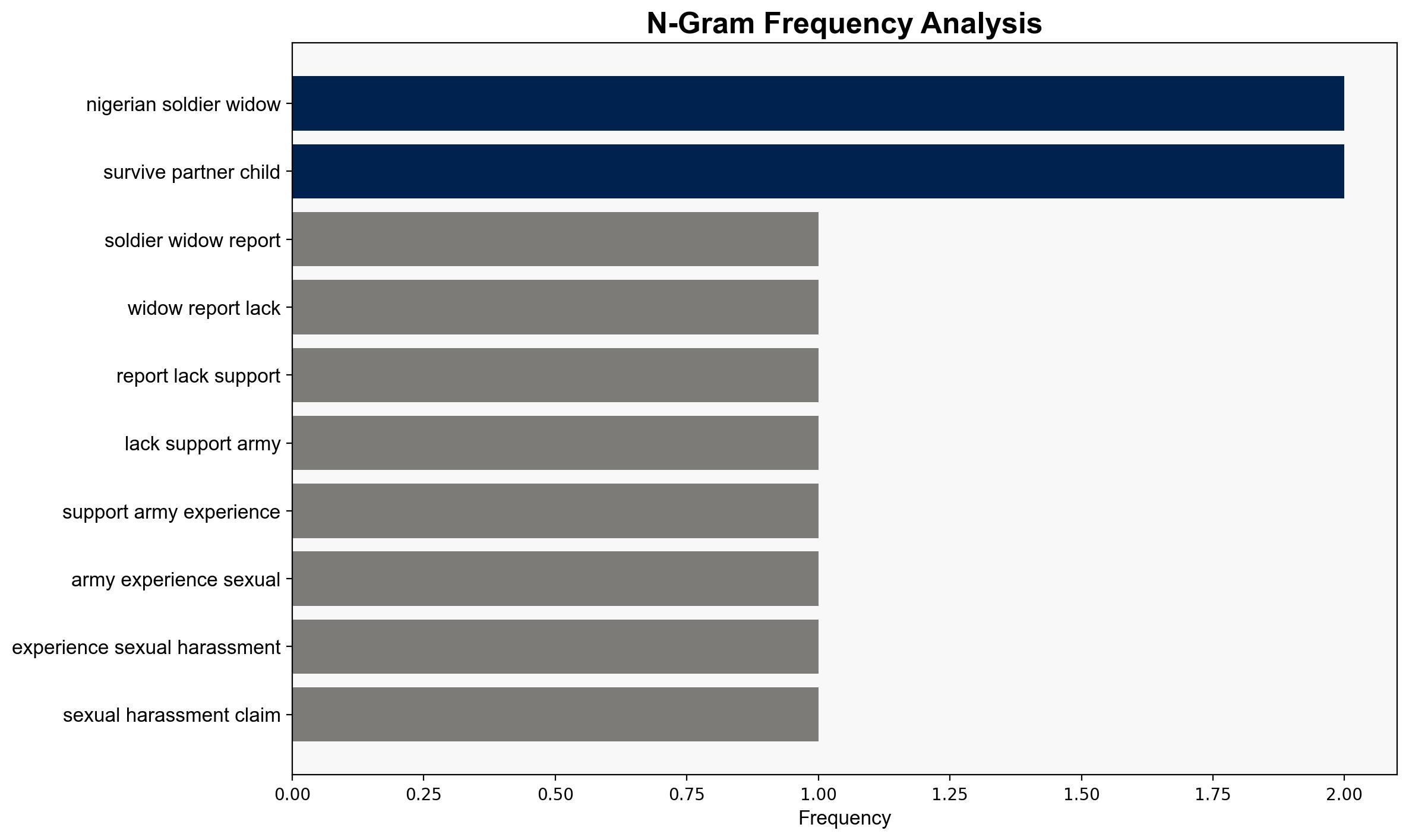Boko Haram conflict Nigerias army is failing the widows of dead soldiers – The Conversation Africa
Published on: 2025-07-20
Intelligence Report: Boko Haram Conflict – Nigerian Army’s Support to Widows of Fallen Soldiers
1. BLUF (Bottom Line Up Front)
The Nigerian Army is facing significant criticism for its inadequate support to the widows of soldiers who died in the conflict against Boko Haram. Key findings indicate systemic neglect, bureaucratic inefficiencies, and instances of harassment, which exacerbate the socio-economic vulnerabilities of these widows. Recommendations include reforming administrative processes and enhancing support mechanisms to improve the welfare of affected families.
2. Detailed Analysis
The following structured analytic techniques have been applied to ensure methodological consistency:
ACH 2.0
Analysis suggests that the Nigerian Army’s failure to adequately support widows may stem from entrenched bureaucratic practices and a lack of accountability within military structures.
Indicators Development
Monitoring of digital platforms reveals a potential increase in radicalization among affected communities, which could be exacerbated by grievances related to inadequate support.
Narrative Pattern Analysis
Propaganda narratives exploiting the plight of widows could be used by Boko Haram to recruit and incite further unrest, highlighting the need for strategic communication interventions.
3. Implications and Strategic Risks
The ongoing neglect of widows could lead to increased disenchantment with the military, potentially fueling insurgency recruitment. This situation poses risks across political and social dimensions, potentially destabilizing regional security. The lack of effective support systems may also undermine public trust in government institutions.
4. Recommendations and Outlook
- Streamline administrative processes to ensure timely and efficient delivery of benefits to widows.
- Implement training programs for military personnel to improve interactions with affected families and reduce instances of harassment.
- Develop strategic communication campaigns to counteract negative narratives and reinforce the government’s commitment to supporting military families.
- Scenario Projections:
- Best Case: Comprehensive reforms lead to improved welfare and reduced radicalization risks.
- Worst Case: Continued neglect results in heightened insurgency activity and regional instability.
- Most Likely: Incremental improvements with ongoing challenges in bureaucratic processes.
5. Key Individuals and Entities
Specific individuals are not mentioned in the source material. Focus remains on institutional practices and systemic issues within the Nigerian Army.
6. Thematic Tags
national security threats, counter-terrorism, military welfare, regional stability





